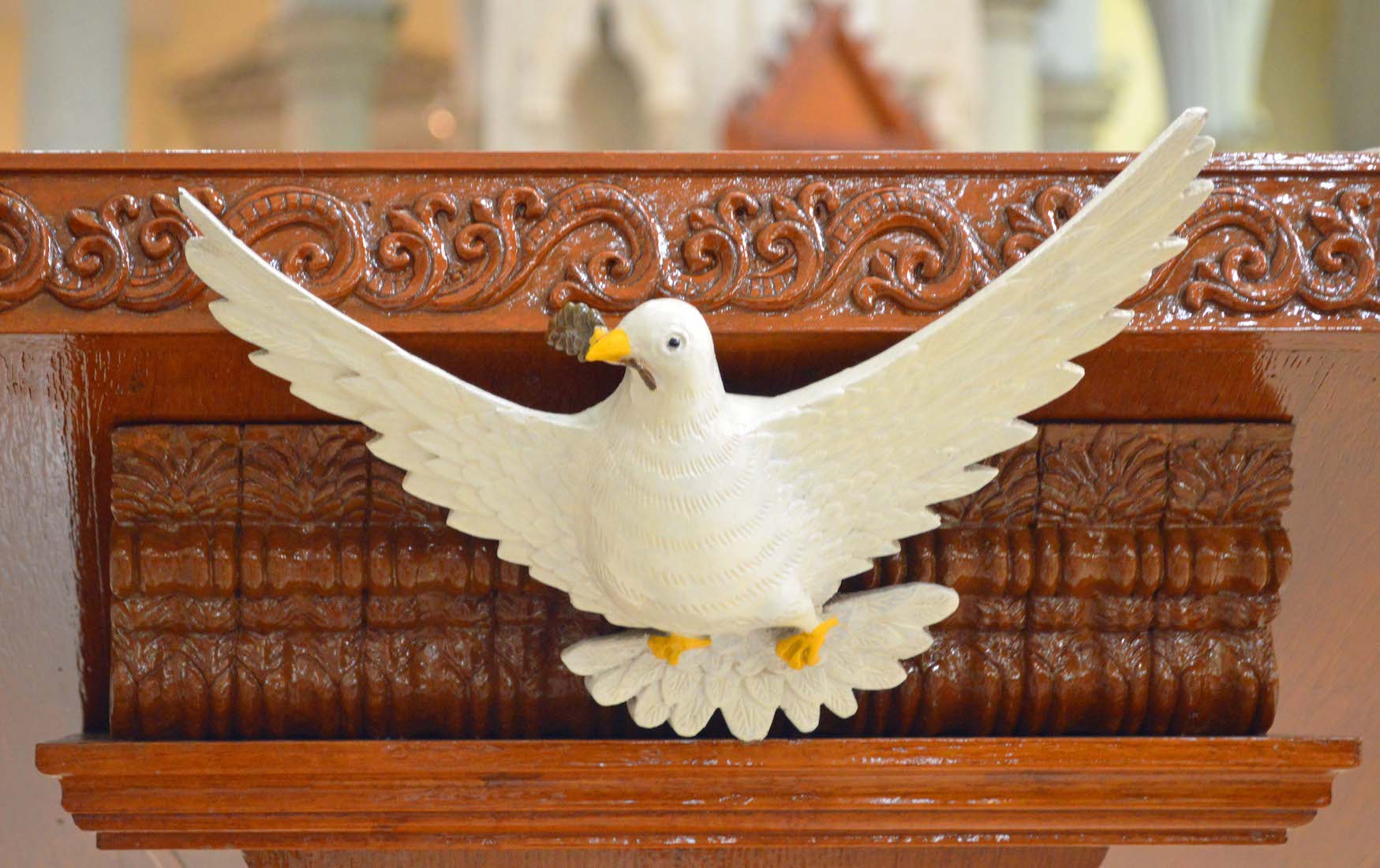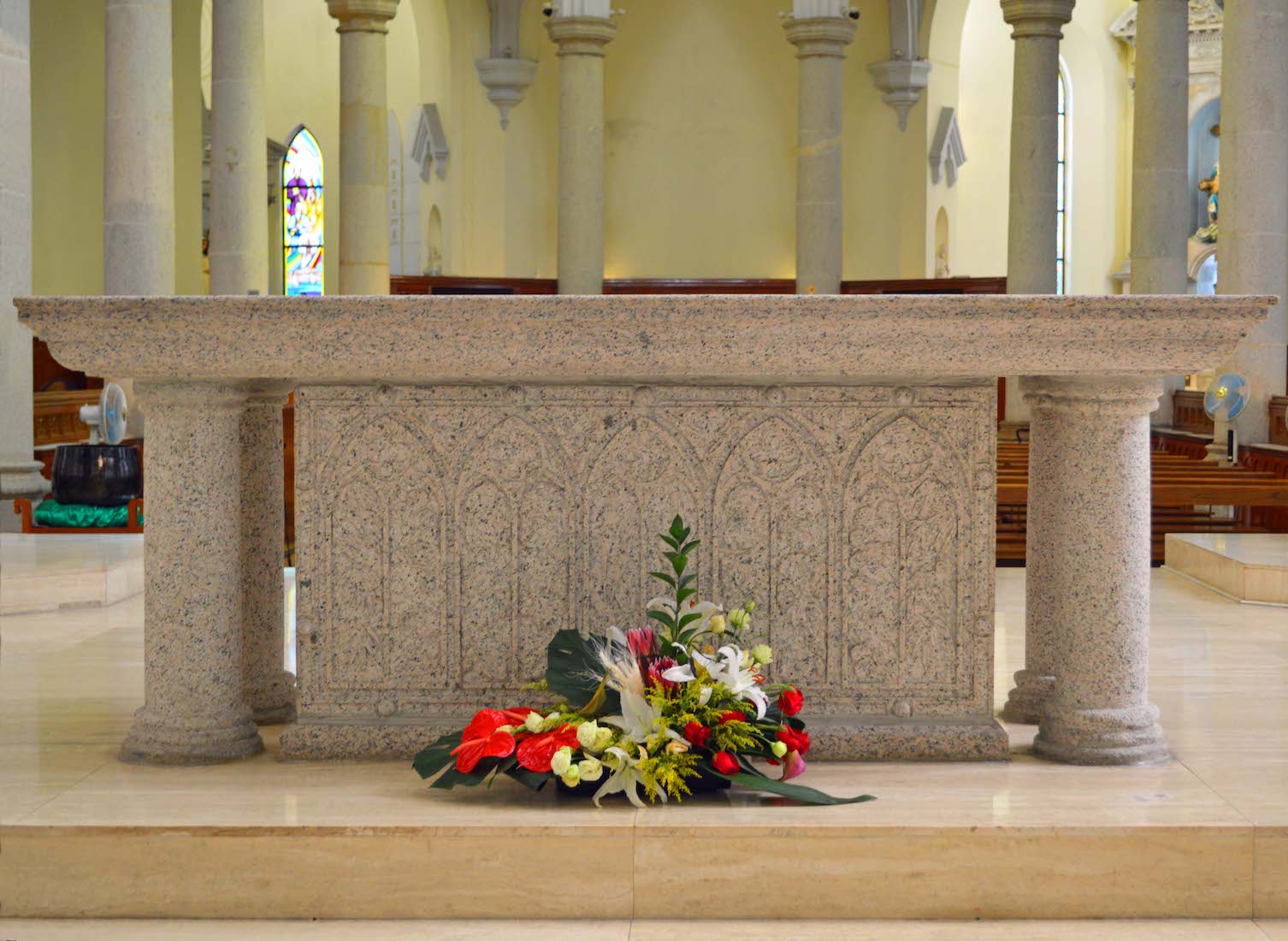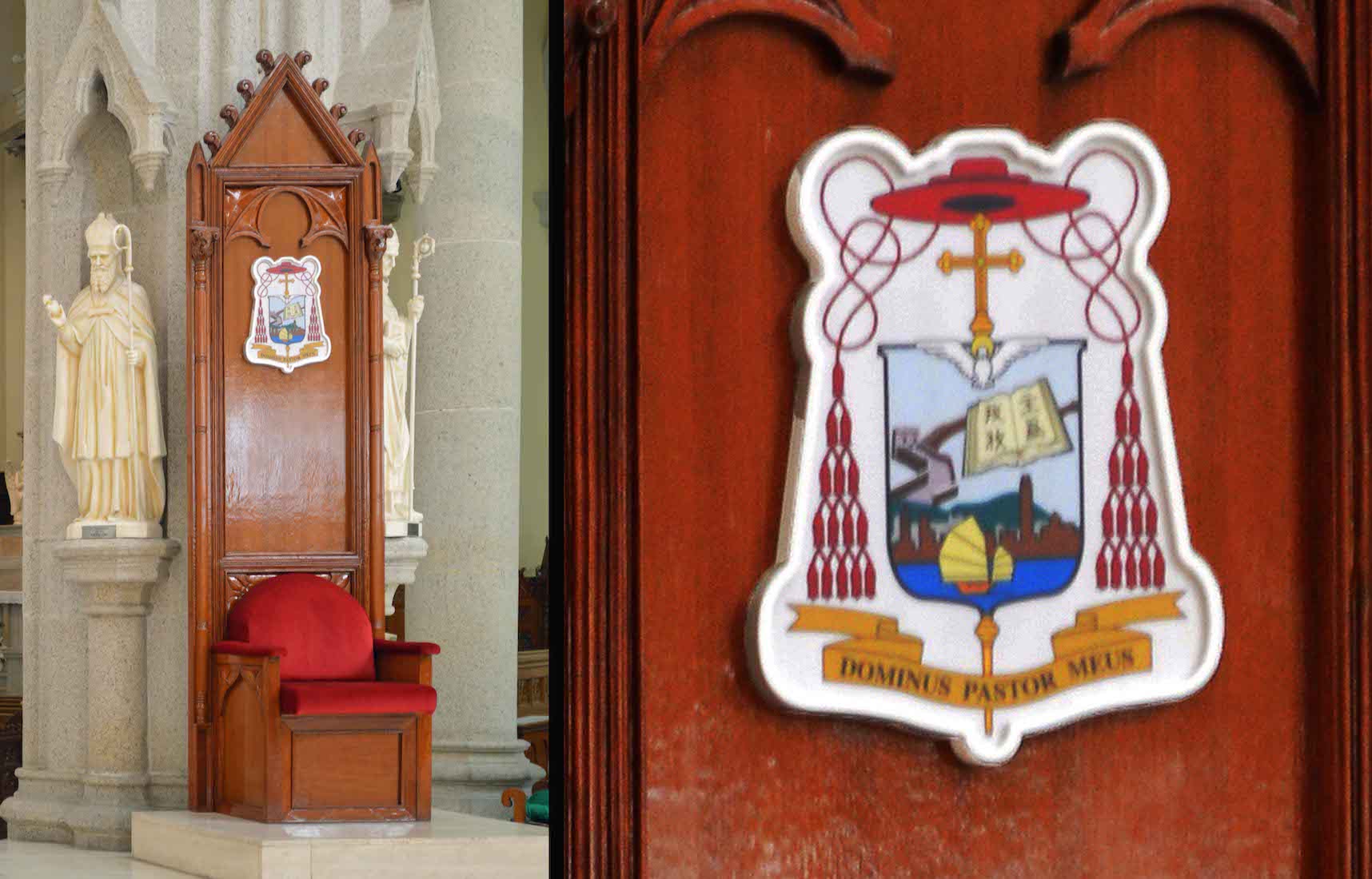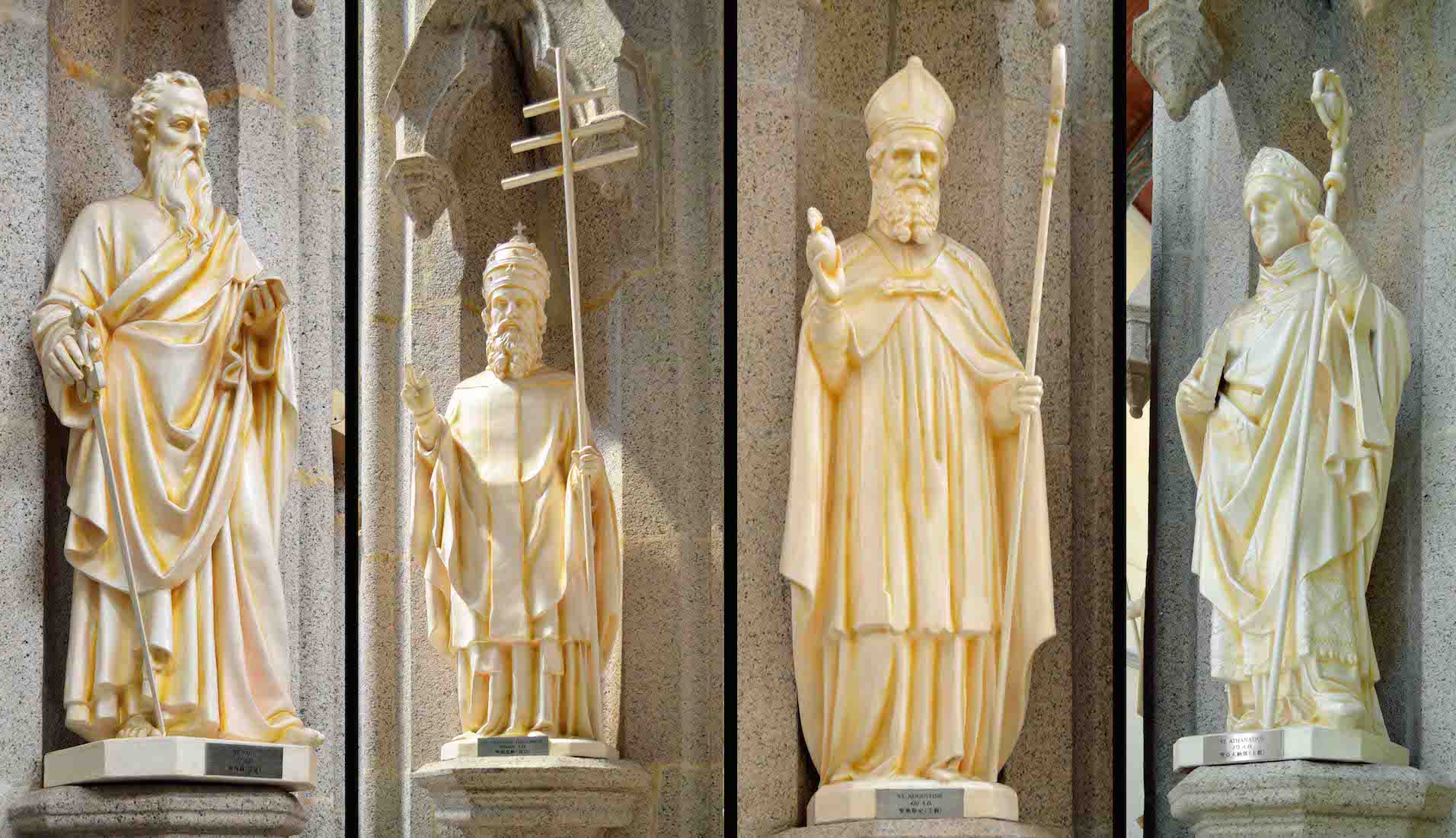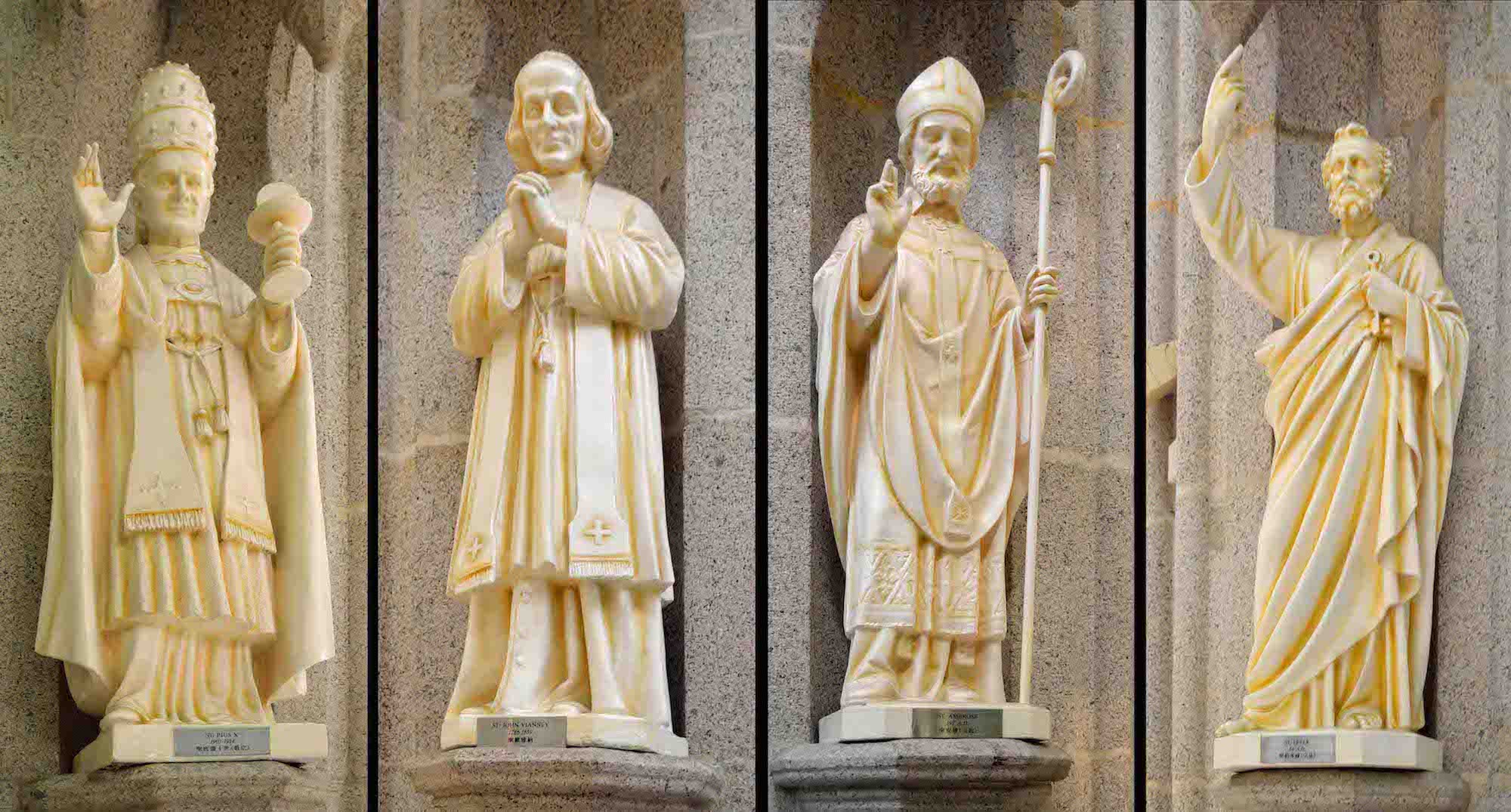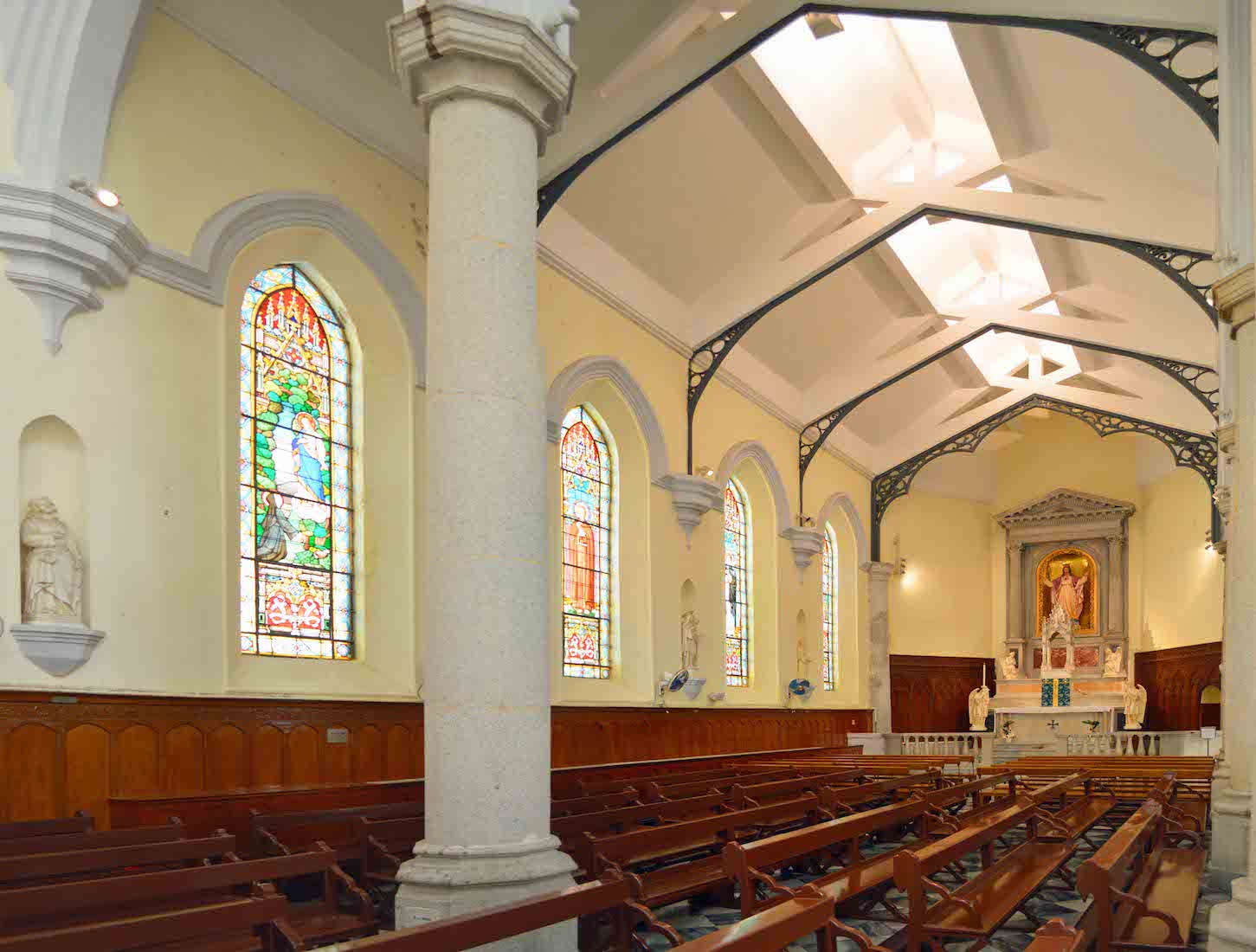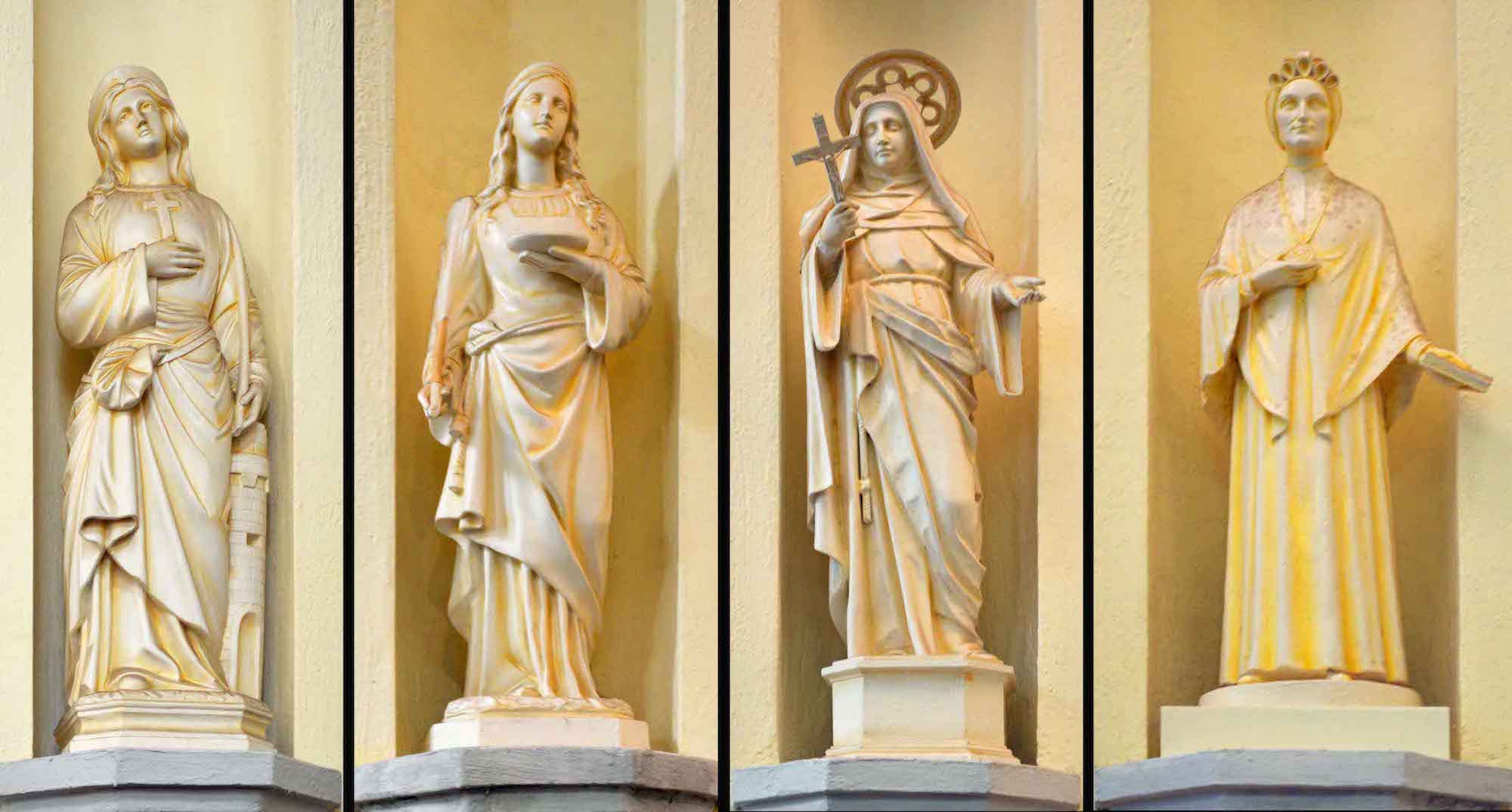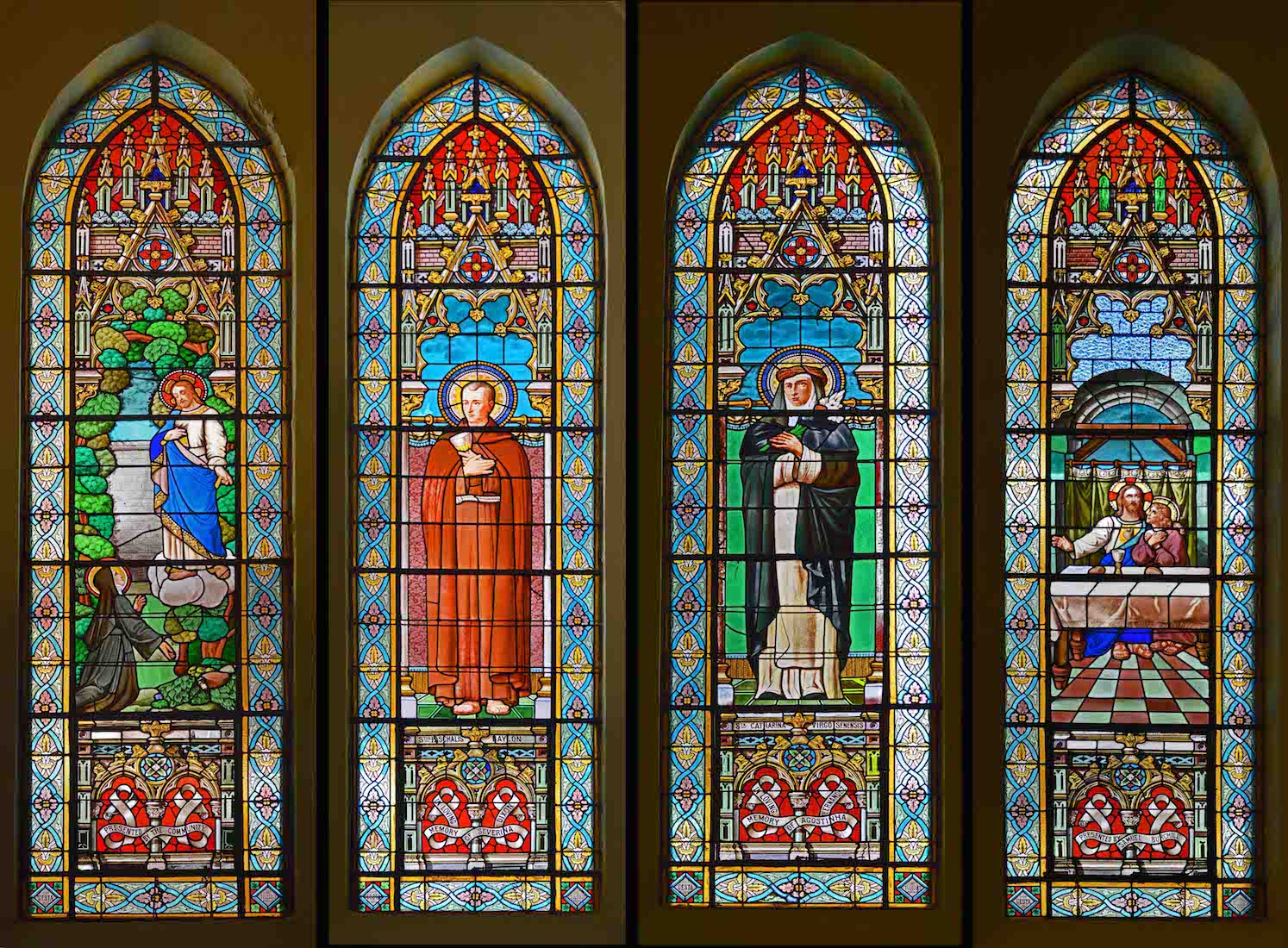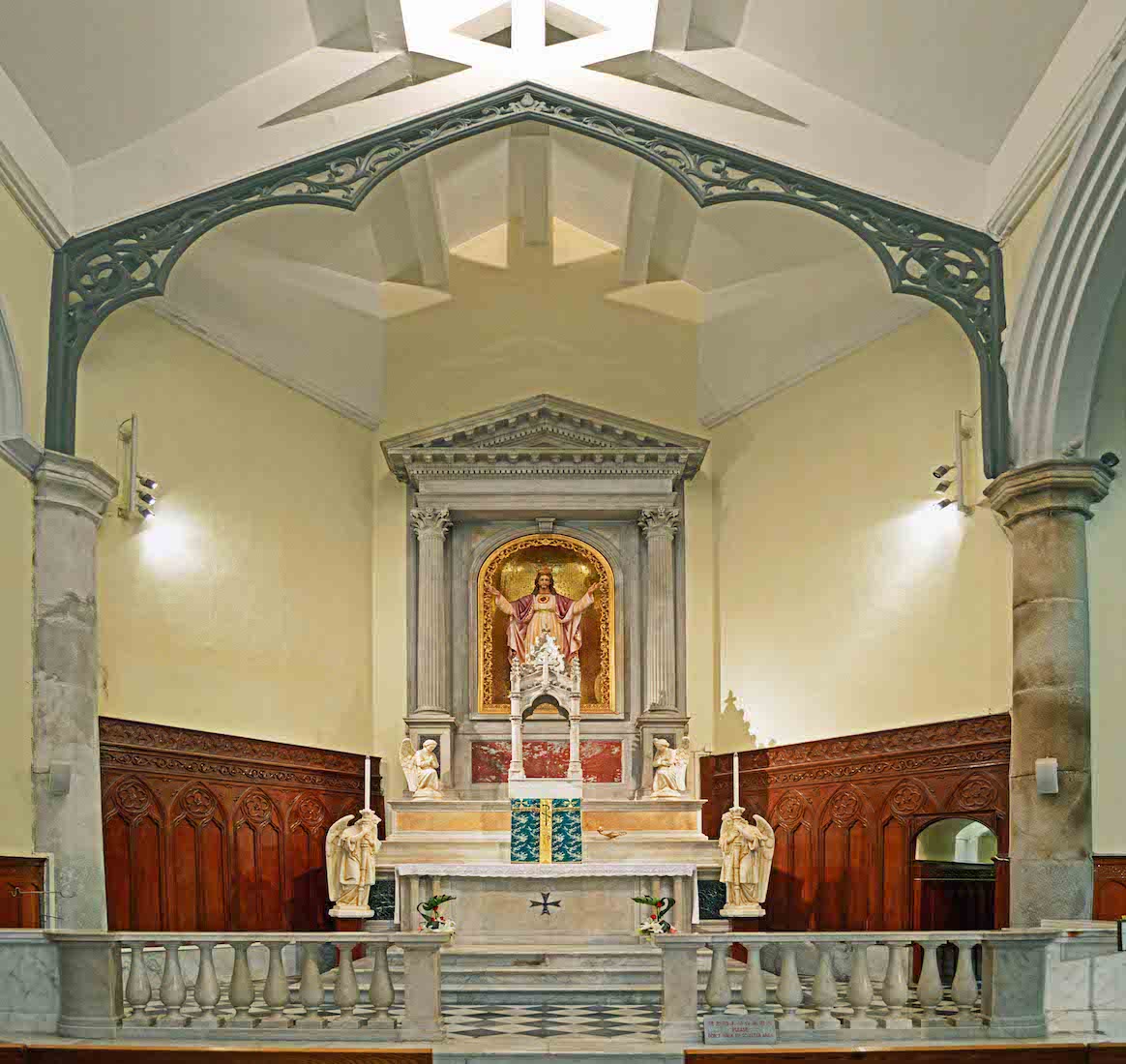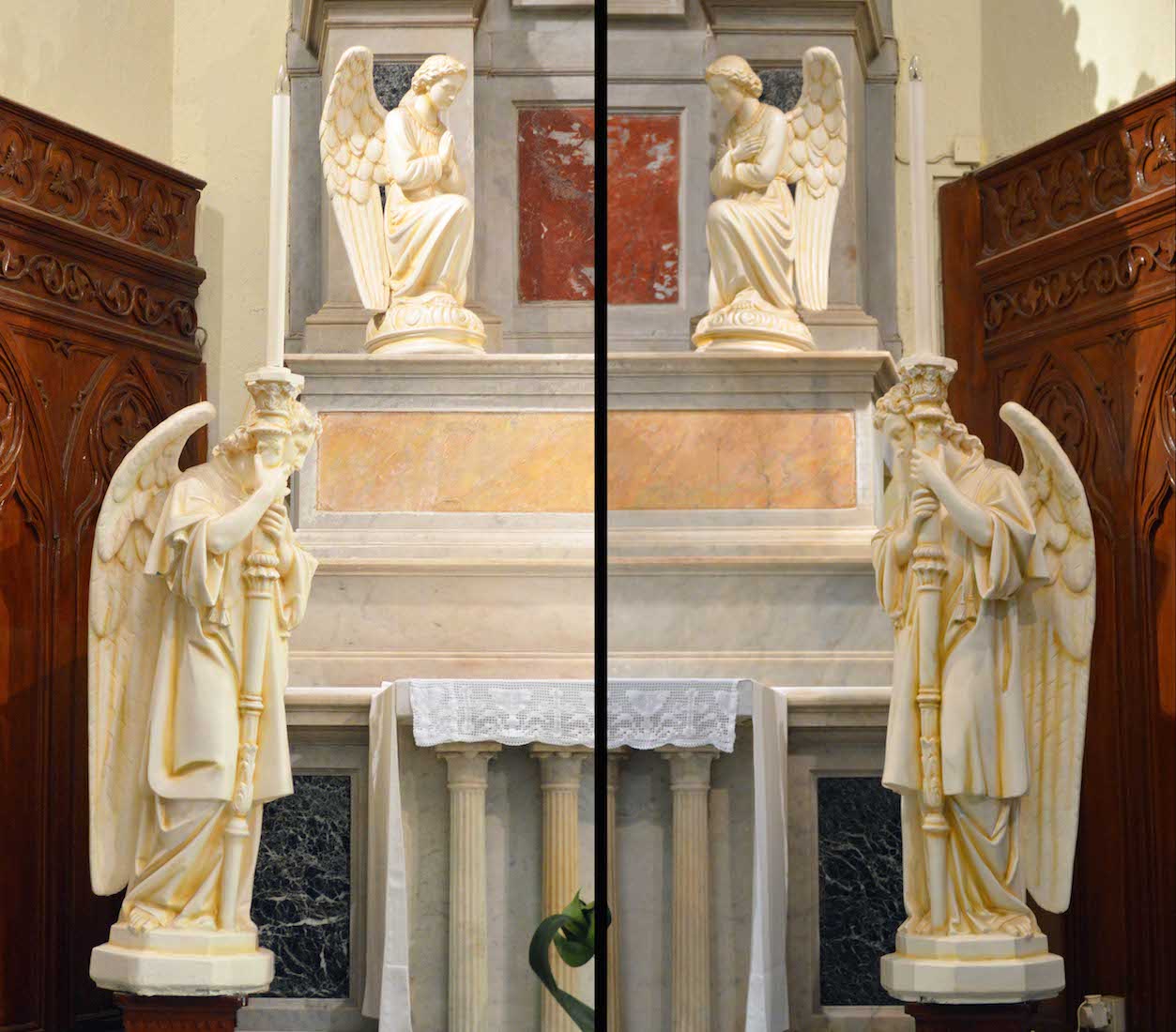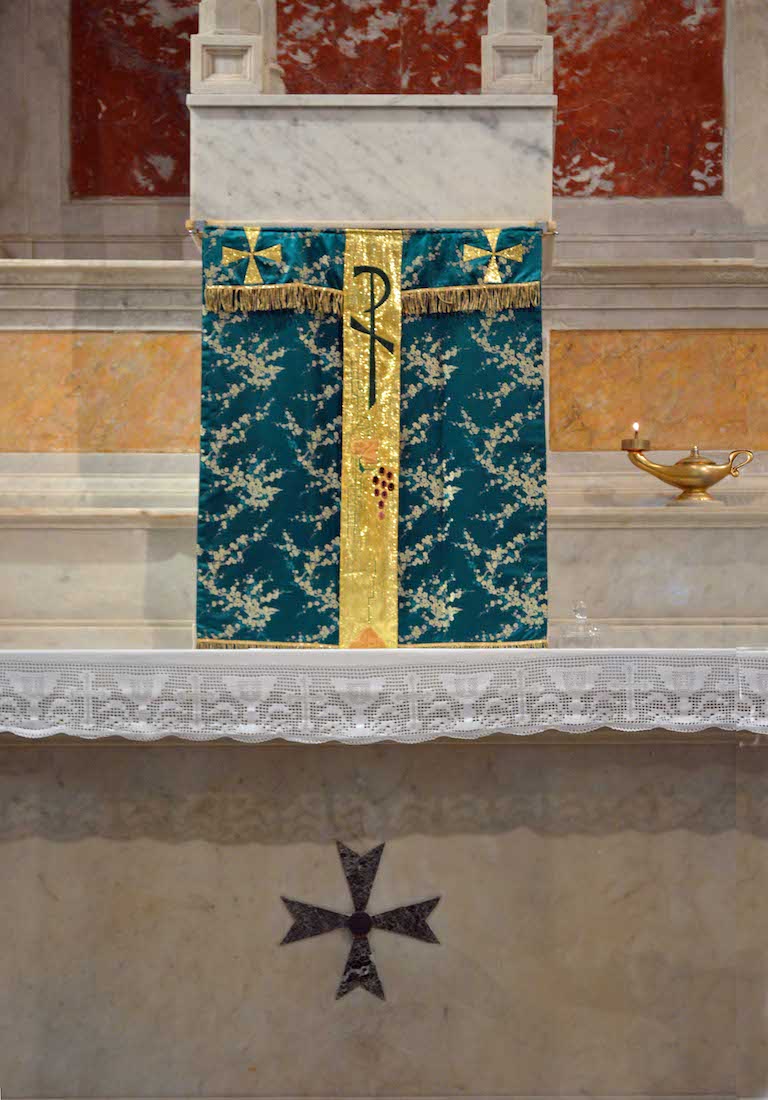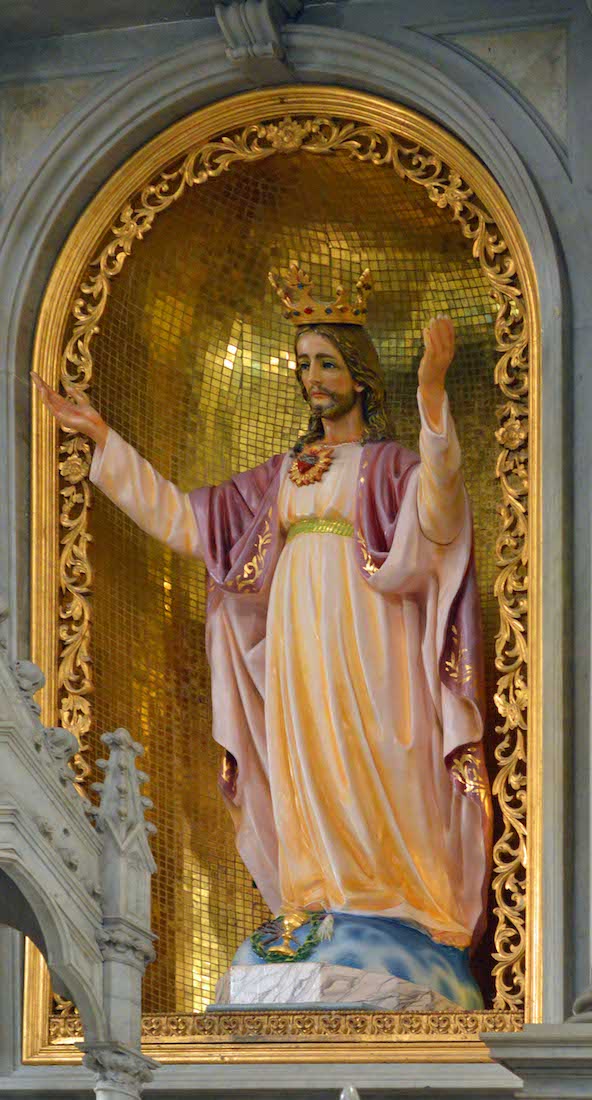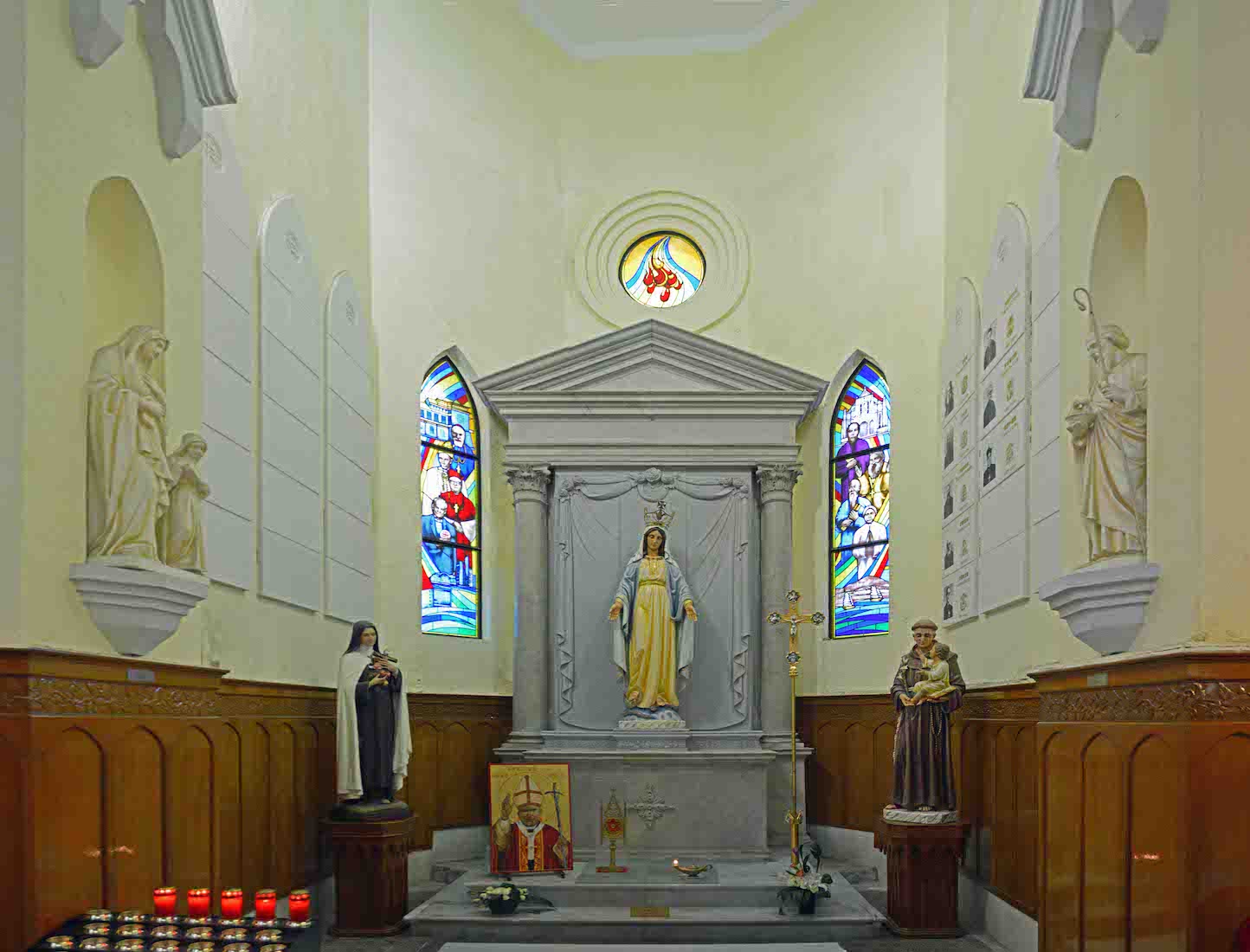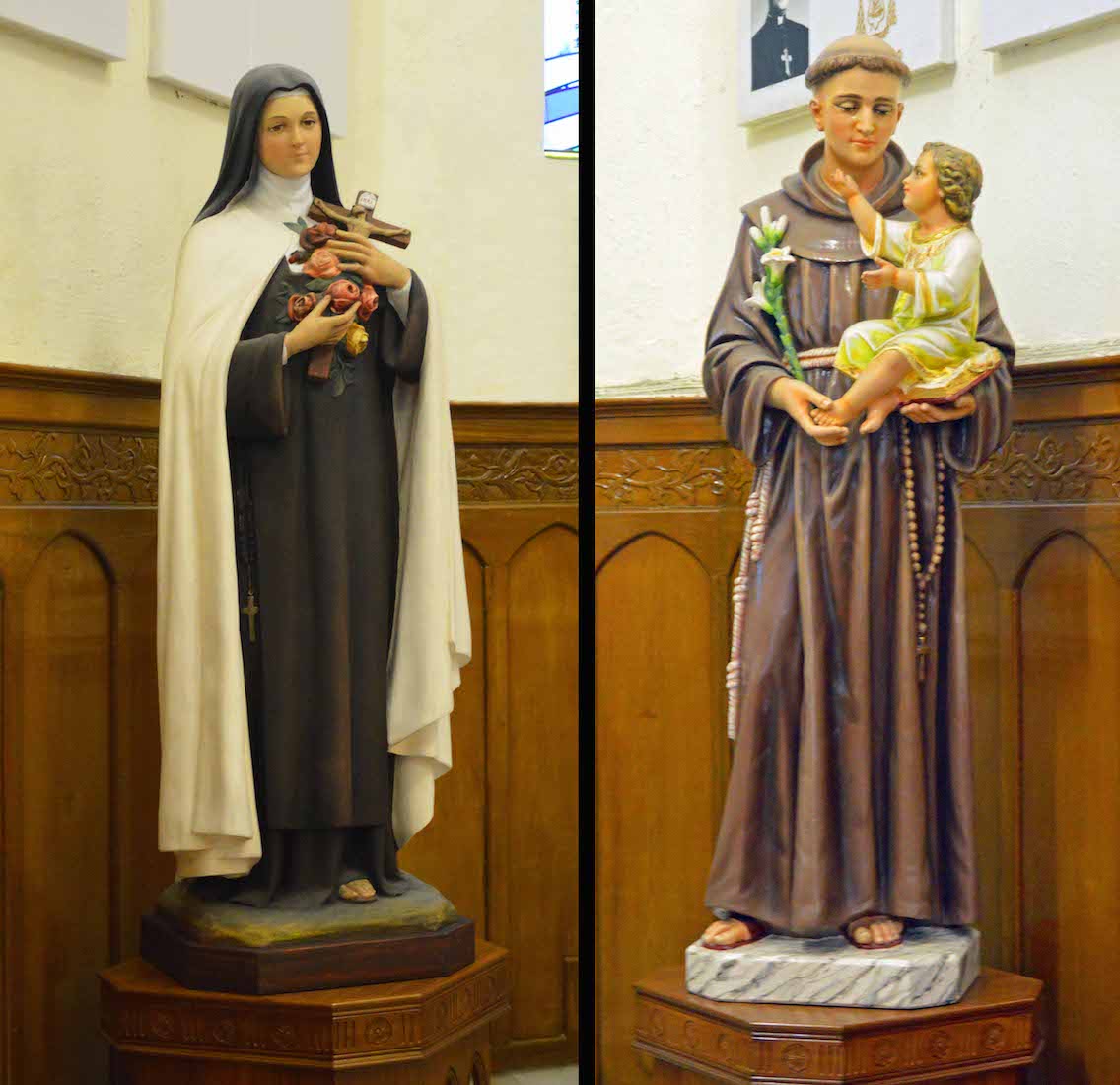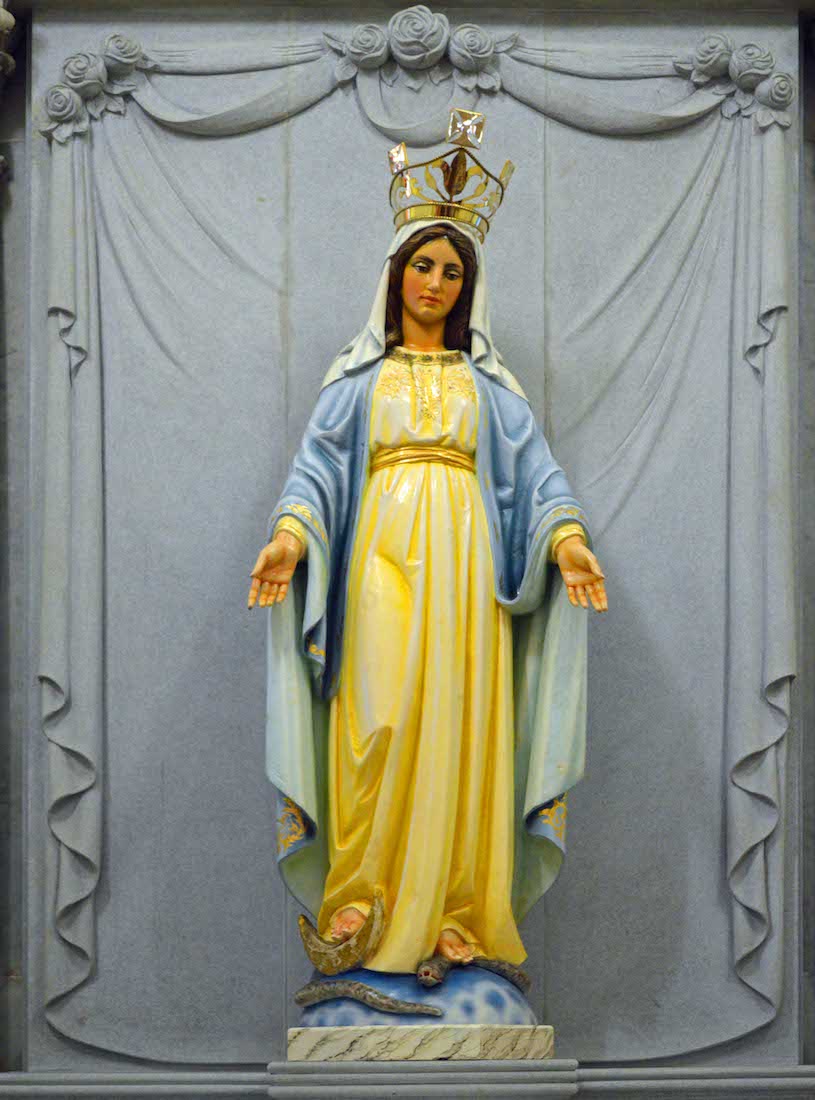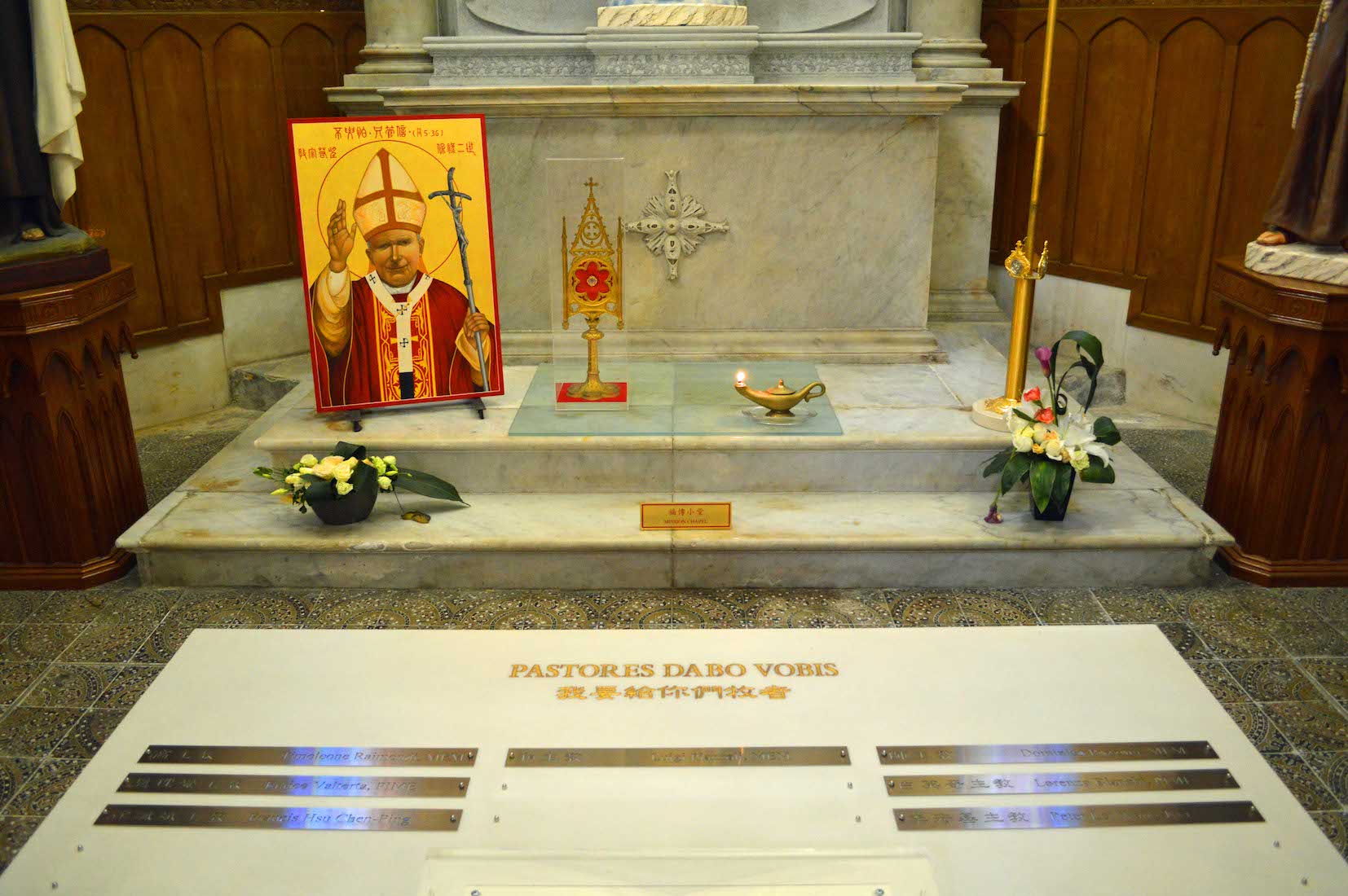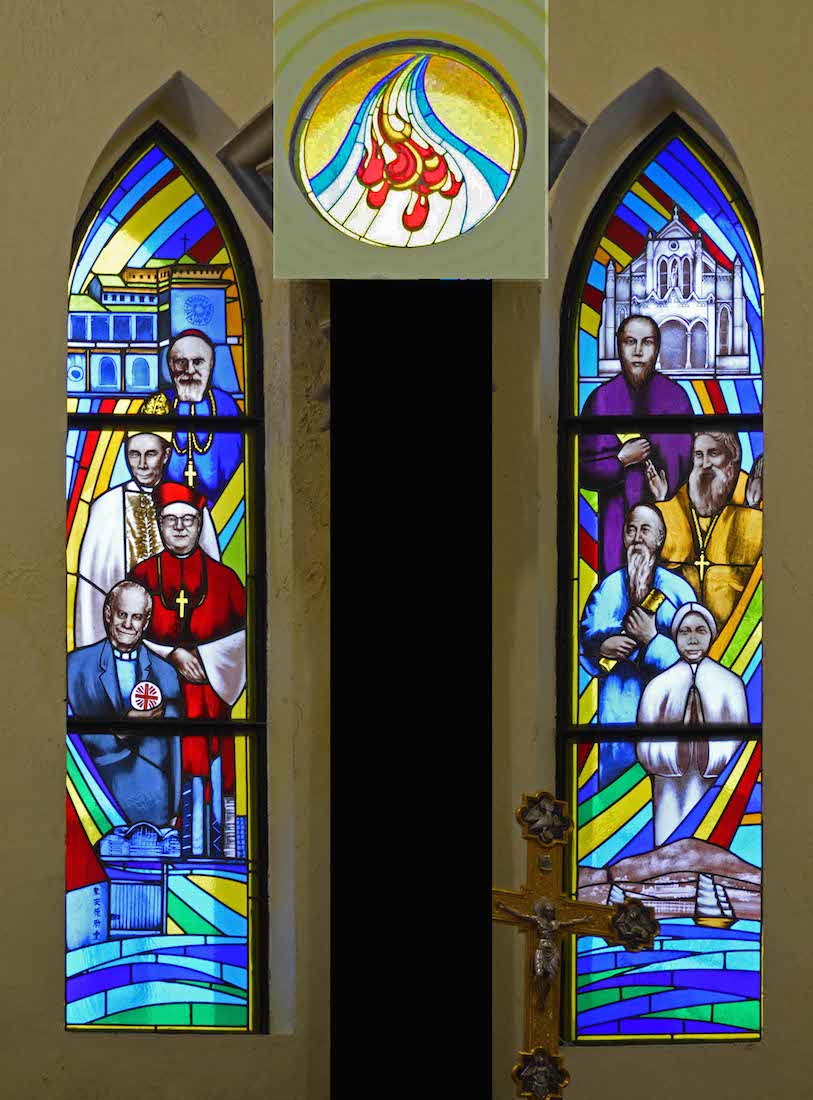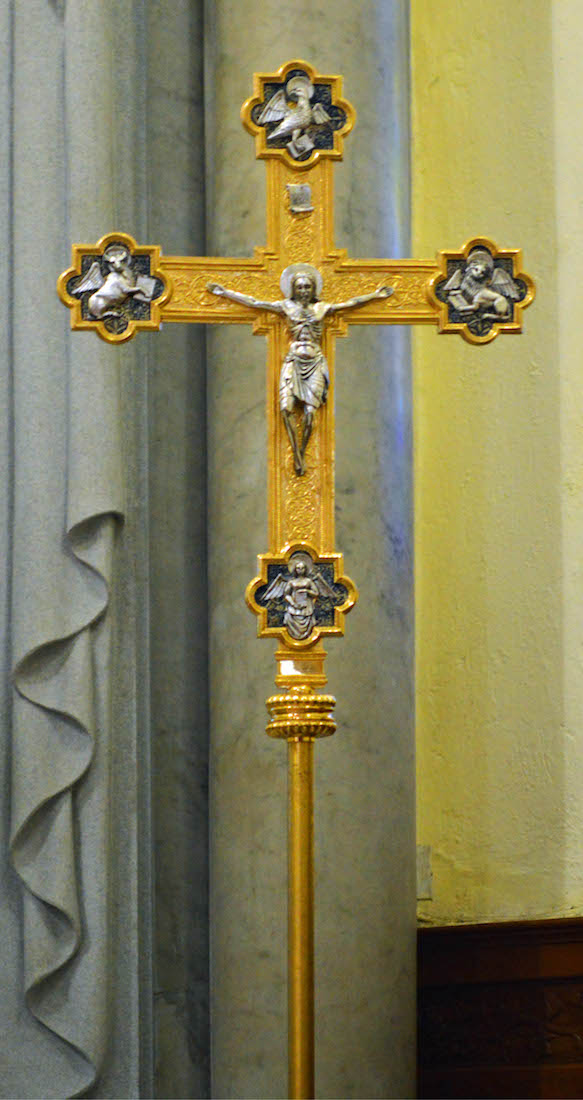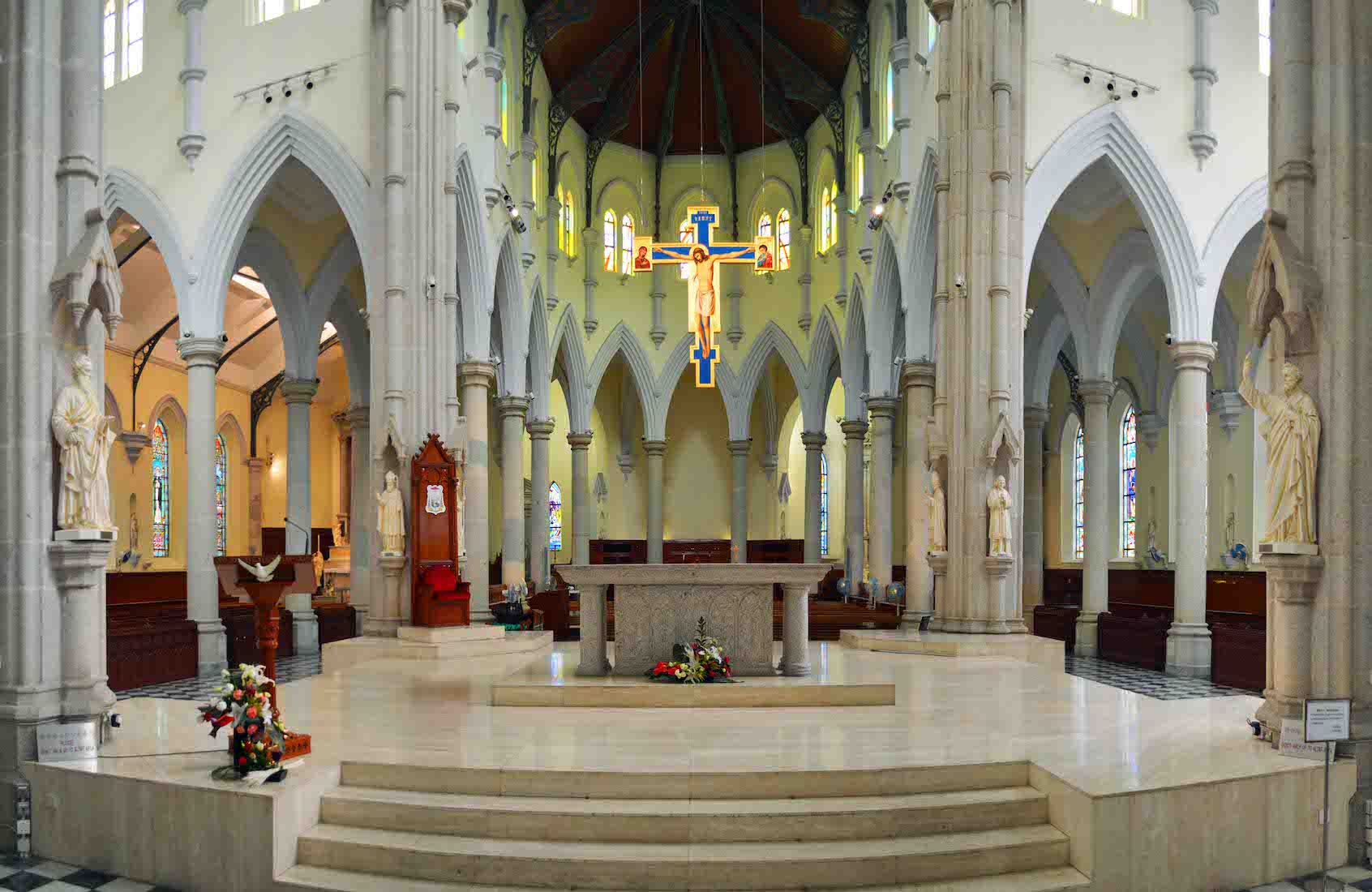
The crossing is the intersection of the transepts and the main axis of the Cathedral. Here there is a raised marble platform on which stands a lectern, the cathedra and the central altar. Various saints look down from their pedestals at the corner columns. PLAN
22. LECTERN
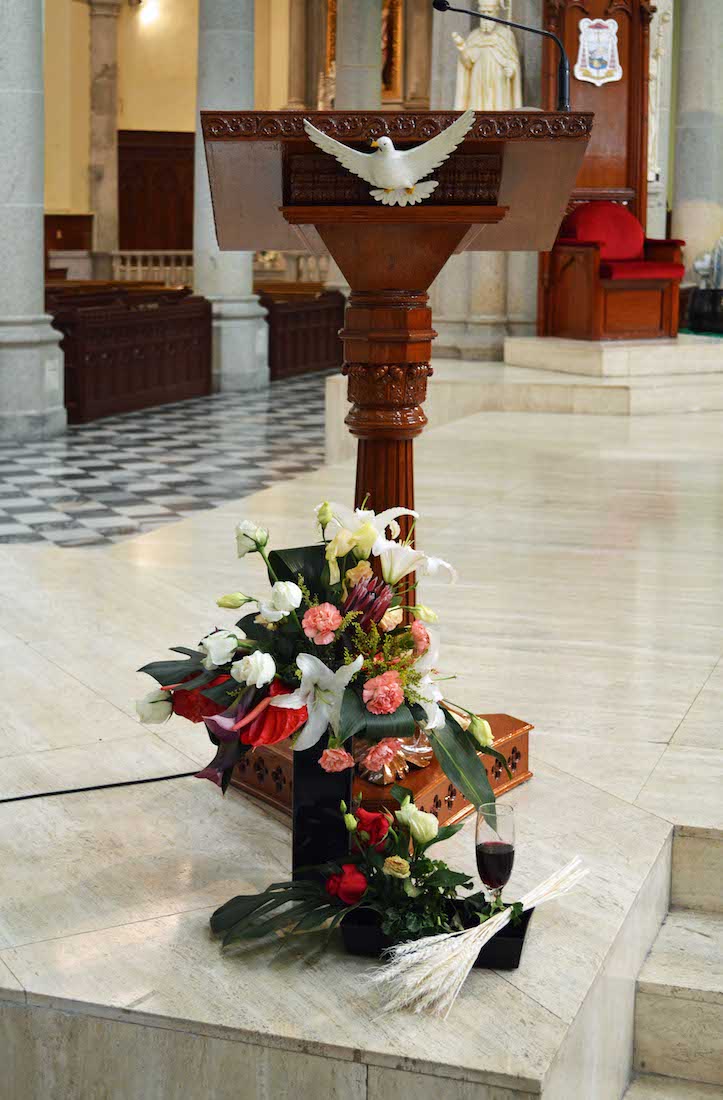
The lectern in fact serves as the pulpit for this Cathedral, and it is from here that the Word of God is expounded Sunday by Sunday. The white dove is a special feature, and the grain and wine at the base with the flowers is also interesting.
23. PULPIT DOVE
The white pulpit dove is one of the delights of this Cathedral. The dove represents the Holy Spirit, but there is also an allusion here to the dove which returned to Noah carrying a twig as the flood waters receded. The message is that God is faithful and provides for his children.
24. CENTRAL ALTAR
This is the main altar in the Cathedral, and was placed here after the meeting of Vatican II in 1969. It is from this altar that the Eucharist is administered and the saving death of Christ celebrated.
25. CATHEDRA
This is the seat or throne of the Bishop of Hong Kong. In Latin it is called the ‘cathedra’, and this is why this Church is called a Cathedral. At right is the Bishop’s crest. The Latin text translates to ‘The Lord is my Shepherd’.
26. NORTH SANCTUARY SAINTS
There are four saints on the North side of the sanctuary. From left they are: St Paul (67 AD), St Gregory the Great (540–604), St Augustine (430 AD), and St Athanasius (371 AD).
27. SOUTH SANCTUARY SAINTS
Four more saints look down on the sanctuary from the South side. These are St Pius X (1903–1914), St John Vianney (1786–1859), St Ambrose (397 AD), St Peter (54 AD).
29. CHAPEL SAINTS
The gallery of saints is an inspiration in this Cathedral. Here we see four ladies. From left: St Barbara (C 3rd), St Lucia (304 AD), St Rita of Cascia (1381-1457), and St Magdalene of Canossa (1774-1835).
30. CHAPEL WINDOWS
This attractive set of stained glass windows shows (from left): Jesus appearing to an unknown saint; Spanish friar St Paschal Baylon (1540 – 1592); St Catherine of Siena (1347–1380); and Jesus sharing bread and wine with St John?
31. SACRED HEART CHAPEL ALTAR
The sanctuary area at the East end of the chapel contains an altar with worshipping angels on either side, and a depiction of the Sacred Heart behind.
32. WORSHIPPING ANGELS
The angels on either side of the Sacred Heart altar ...
33. CHAPEL ALTAR DETAIL
The colourful hanging shows a modified Pater Noster symbol. A small lamp burns at right. It is likely that this is an aumbry, with the reserved elements of the Eucharist hidden from view.
34. SACRED HEART ALTAR
The devotion to the Sacred Heart is one of the most widely practised and well-known Roman Catholic devotions, taking Jesus Christ’s physical heart as the representation of his divine love for humanity. This was the high altar of the original cathedral in Wellington Street.
35. MISSION CHAPEL
Adjacent to the Sacred Heart Chapel is the Mission Chapel. At centre is the Virgin Mary; on either side stained glass windows, various saints, and several items on the steps. The display panels at right presumably show details of important missionaries, but I was unable to photograph these.
36. SAINTS THÉRÈSE AND JOSEPH
Some Catholic saints are easy to identify: here we see St Thérèse of Lisieux, commonly referred to as ‘The Little Flower’, and St Joseph carrying the child Jesus and his sprouting branch.
37. THE VIRGIN MARY
The Virgin Mary, the mother of Jesus, is often referred to by Roman Catholics as ‘the Queen of Heaven’ – hence the crown. She is also often depicted with a snake underfoot: an oblique reference to the defeat of Satan by Christ (Gen 3:15).
38. MISSION CHAPEL ITEMS
The floor plaque reads (in Latin): I shall give you shepherds. Presumbly the names are of those who have died on missionary service. At centre is a monstrance carrying the blessed Eucharist elements, and the burning lamp. A lock of Pope John Paul II's hair is housed at the cathedral as a relic.
39. CHAPEL WINDOWS
The top round window signifies heaven with the coming of the Holy Spirit. The window at right shows important figures in the life of the Church in the early days of Hong Kong. The window at left shows people involved after the Diocese of Hong Kong was formed in 1946.
40. PROCESSIONAL CROSS
This interesting processional cross stands in the Mission Chapel. It shows Christ crucified at the centre, with symbols of the Four Evangelists at the ends.


